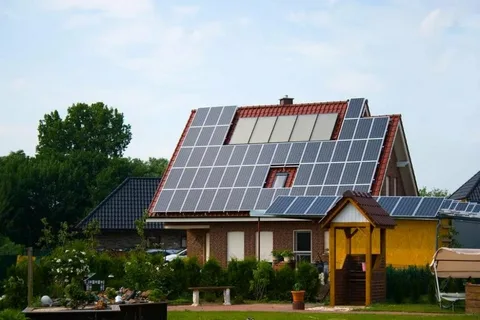As the cost of electricity continues to rise and environmental concerns grow, more homeowners are asking, “Is a home solar power system worth it? Breaking down the ROI is crucial before making this investment. This article explores the financial, environmental, and long-term benefits of installing solar panels, helping you determine whether solar is the right choice for your home.
Understanding the Upfront Costs
Installing a solar power system comes with a significant initial investment. The average cost of a residential solar system ranges between $15,000 to $25,000 before tax credits and incentives. These costs typically include:
-
Solar panels
-
Inverters
-
Mounting hardware
-
Installation labor
-
Permits and inspections
However, the federal solar Investment Tax Credit (ITC) currently allows homeowners to deduct 30% of the installation cost from their federal taxes, significantly reducing the upfront burden.
Calculating the Return on Investment (ROI)
To answer the question, “Is a home solar power system worth it? Breaking down the ROI involves more than just calculating how long it takes to recoup your investment. Here’s how to evaluate it:
1. Energy Savings
The average American household saves between $600 and $1,200 annually on electricity bills after going solar. In sunny states like California, Arizona, or Texas, the savings can be even higher.
2. Payback Period
The payback period is the time it takes to recover your initial investment through energy savings. Most homeowners see a payback period of 6 to 10 years, after which the electricity generated is essentially free for the life of the system (typically 25–30 years).
3. Increase in Property Value
Homes equipped with solar energy systems tend to sell faster and at higher prices. According to multiple real estate studies, solar installations can add $10,000 to $15,000 to a home’s resale value.
Other Factors to Consider
Maintenance and Reliability
Solar systems require minimal maintenance. Most manufacturers offer 20–25-year warranties on panels, and inverters typically last 10–15 years. Regular cleaning and occasional check-ups are often enough to keep the system efficient.
Environmental Impact
Installing solar reduces your carbon footprint by cutting down on fossil fuel consumption. A typical residential solar system can eliminate 3 to 4 tons of carbon emissions annually—the equivalent of planting over 100 trees each year.
When Solar Might Not Be Worth It
Despite the benefits, solar isn’t for everyone. Here are a few cases where it may not offer a good ROI:
-
Low electricity rates in your area
-
Limited sun exposure due to shade or weather
-
Short-term ownership, as ROI builds over years
-
High installation costs without access to tax credits or incentives
Final Thoughts
So, is a home solar power system worth it? Breaking down the ROI shows that, in many cases, the financial and environmental benefits outweigh the costs—especially over the long term. With incentives, reduced energy bills, increased home value, and eco-conscious living, solar power can be a smart investment for many homeowners.
Before making a decision, evaluate your home’s solar potential, consult with a trusted installer, and crunch the numbers to determine whether the ROI justifies the cost. For many, the answer is a confident “yes.”


